Not even Ahmed Fahour could save the company behind Harvey Norman, The Good Guys and JB Hi-Fi’s catchy deals
The rock star CEO made a splash by promising to disrupt banking. But his lender had a history of being accident prone.
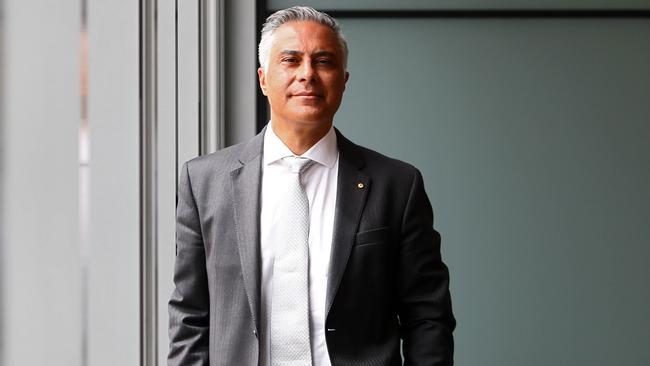
Business
Don't miss out on the headlines from Business. Followed categories will be added to My News.
Ahmed Fahour – the last of the rock star chief executives – had big plans for Latitude Financial.
Frequently likened to an Australian George Clooney, he was going to give the consumer finance house that emerged out of GE Money, some much needed polish and sophistication.
High on his agenda was disrupting the big banks, expanding Latitude’s buy now, pay later to big ticket items such as cars, and securing its private equity owners KKR, Deutsche Bank and Varde Partners a bonanza of a payday via an ASX listing.

But when Fahour – the former Wall Street banker who turned Australian Post into a parcel delivery juggernaut – left Latitude on Friday, it had not only lost its lustre but was suffering from heavy corrosion.
The challenge of restoring the fortunes of the company which has seen its shares more than halve since it floated in April 2021 now rests on Bob Belan.
Belan doesn’t have the profile of Fahour, whose glittering career begun with Boston Consulting Group in the 1980s and includes being headhunted by Citigroup in New York before returning home to run National Australia Bank’s vast local banking arm and then Australia Post, where a $2.5bn bet on parcels turned it into an e-commerce titan.
But Belan has more than 11 million shares in Latitude, worth about $13.6m, making him the biggest single investor in the group. A condition of his employment is that holding does not fall below 7 million, ensuring that he maintains plenty of skin in the game and delivers.
The handover from Fahour to Belan was supposed to be relatively smooth after Fahour announced his retirement in August. But two weeks ago an explosion went off, forcing the company that sits behind financing and catchy interest free finance offers in Harvey Norman, JB Hi-Fi and the The Good Guys into a full-scale crisis.
It had become the latest Australian company to fall victim to a massive cyber attack, following last year’s assaults on Optus and Medibank. Initially, the feeling inside Latitude was that it could contain the hack. But – largely thanks to ASX disclosure rules – the fallout has unfolded like a slow moving car crash.
Latitude initially told investors about 330,000 or 10 per cent of its customers had their personal records exposed. But as they began investigating the crime the numbers soon spiralled to more than 14 million, becoming Australia’s biggest cyber assault.
Latitude’s auditor Chris Wooden of KPMG called out its information technology systems, controls and governance when he signed off the company’s accounts in February. Auditors have scrutinised the IT systems of other financial services companies, including CBA, NAB, and ANZ to ensure robust account reporting.
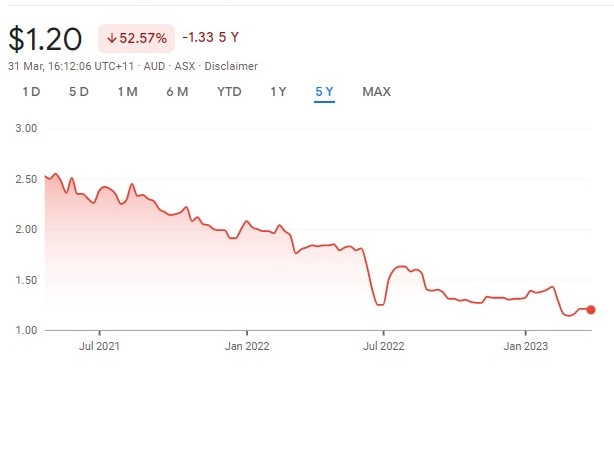
But unlike Latitude, a successful cyber attack has not followed. Most companies now understand it’s not a question of if but when they are hacked, with Australia’s big banks alone fending off millions of sophisticated attacks each day.
KPMG tested Latitude’s governance and higher-level controls “across the IT environment, including those regarding policy design, and review and awareness” weeks before the cyber attack emerged but Mr Wooden did not offer a final verdict on the lender’s practices or mention cyber security specifically.
Soon after Mr Wooden signed off on the accounts hackers were helping themselves to raft of highly personal information from Latitude’s customers, including copies of their drivers licences and passports, and Medicare numbers – the key ingredients for identity theft and fraud.
Citi analyst Thomas Strong says Latitude shares have had a “torrid 12 months” but if it restores its systems and compensates customers, it “may be able to contain the implications from this event”. He has estimated the hack’s clean-up bill to be $10m to $15m but has warned this figure could move higher.
Accident prone
Back under the ownership of global giant GE and under a previous management team Latitude had a history of being accident prone. The consumer credit business regularly tangled with corporate cop ASIC for stepping over the line when it came to a hard sell.
Indeed GE Money was forced to pay millions in fines around credit card limits, hidden fees and also claims promoting the cheapest finance.
ASIC struck again recently and this time it was under Fahour’s watch. The regulator launched a civil action against both Latitude and its biggest partner retailer Harvey Norman for alleged misleading claims which directed people to apply for a Latitude GO Mastercard. Latitude is defending the action.
But in September Latitude agreed to pay a $1.55m fine and bring in external advisers after sending three million spam emails and texts between June 2021 and March this year, attracting the ire of the Australian Communications and Media Authority.
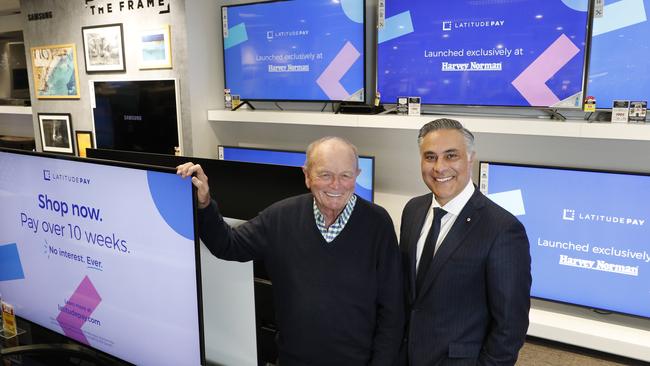
For Fahour the cyber attack is the worst parting gift imaginable, leaving a stubborn stain on his legacy from his four-and-a-half years at Latitude’s helm.
But he had bad luck long before hackers infiltrated the company’s customer database. A year after he joined Latitude he began a much-hyped publicity tour to promote the group’s float.
In September 2019, he unveiled a prospectus, with shares priced at between $2 and $2.25 each, valuing the company up to $4bn.
Fahour was in line to get a discretionary bonus on listing of up to $22.5m in stock on top of his pay, which is targeted at $4.8m. This included base pay and bonuses.
He also had a no-interest loan of $17.5m to finance his purchase of stock in the company which, according to Latitude’s prospectus, could have been as many as 12.6 million shares worth $27m at $2.15 a share. Plenty of skin in the game.
New Fintech
Fahour pitched the 90-year-old company to investors as a “fintech”. After all, Latitude had no branches and was being listed, in the words of Goldman Sachs, as a digital payments, instalments and lending business that operates a multichannel customer origination platform.
In his first 12 months in the job, Fahour busily branded its products with a common “Latitude label” rather than the disparate product mix it had before, giving it a fresh air of professionalism and neat package to present to investors.
Fahour shrugged off concerns about the soft IPO market at the time and instead focused on improved domestic consumer confidence and property clearance rates in recent months.
“The momentum is incredibly positive,” Fahour said at the time about rocky investment markets. “The amount of demand for technology-based finance companies is skyrocketing.”
In early October 2019, that momentum seemed unstoppable after Latitude announced a partnership with Wesfarmers-owned online retailer Catch Group to extend the footprint of its “buy now, pay later” platform, Latitude Pay. Fahour was confident the move would dent the fast rise of Afterpay and the wave of tech savvy lenders it had inspired.
“The big difference between us and Afterpay is that we have other products to offer to merchants when they come to our network,” Fahour said. “We don’t have to make money from every customer on every transaction. We have other products that can service all of the needs of merchants. Our competitors only offer the one product and charge maximum fees because that’s all they do.”
But two weeks later the IPO’s price was slashed to $1.78 a share, with investment bankers at UBS believed to be the driving force behind the move as Latitude’s private equity owners faced a nervous wait to see if the deal would get across the line.
It didn’t. A day later the float was shelved. It was the second time KKR, Deutsche Bank and Varde Partners had attempted to offload the company.
Comeback
But Fahour has a knack of rising like a phoenix. And during the next year as Covid-19 hit and Melbourne, his hometown, became one of the world’s most lockdown cities, he began resetting the company for another tilt at the ASX boards.
Fahour expanded Latitude’s interest-free offering to bigger ticket items, including home renovations and medical procedures for customers and their pets, as buy now, pay later shopping surged at the expense of traditional credit cards.
Then he signed a sponsorship deal with then reigning AFL premiers, the Richmond Tigers – a move that was seemingly at odds to his personal love of the Carlton Football Club.
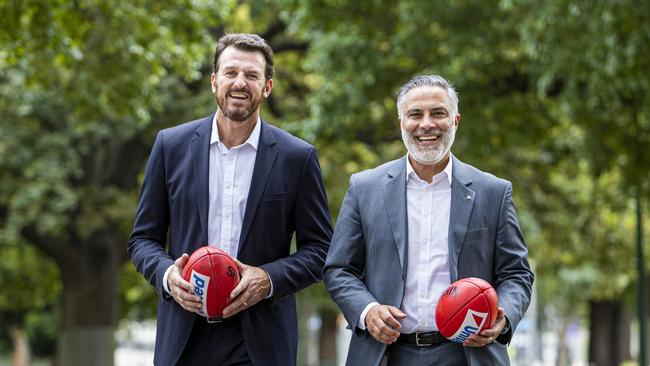
“I personally am a Carlton supporter,” Fahour quipped. “But this is not about Ahmed sponsoring Richmond, this is about Latitude sponsoring Richmond.
“Therefore we have to make a decision with what’s in the best commercial interest of Latitude, and there is no question that Richmond is currently the most successful, one of the most powerful clubs currently and has been for a number of years.” He was particularly eyeing Richmond’s 100,000 customers as potential Latitude customers.
“I am wanting our brand to reach out to as many Australians as possible through marketing. Richmond gave us an opportunity.”
By March 2021, Latitude’s owners were ready to pull the trigger on a third IPO attempt – albeit on a much smaller scale. It would float 25 per cent of the company, or about $200m worth of shares. KKR, Deutsche Bank and Varde would maintain a 66.4 per cent stake, with Japan’s Shinsei Bank owning the remaining 10 per cent.
A month later it was a case of third time lucky, with Latitude – or a quarter of it – hitting the ASX boards. Under the deal, Fahour bought 16.5 million Latitude call options that he could exercise in three tranches in March 2023. Each tranche comprises 5.5 million options that Fahour can push the button on at $3.12, $3.25 and $3.50 a share respectively.
Those options are now deeply out of the money, with Latitude not able to trade above its $2.60 IPO price, with its share price diving 53 per cent to $1.20 during that time.
Failed deal
Latitude’s shine began to dull, with its shares taking a dramatic U-turn, in early June last year when Humm former chairman Andrew Abercrombie wrote to shareholders urging to block a sale of its buy now, pay later business that Fahour had been chasing.
Melbourne powerbroker Abercrombie, who then owned 20 per cent of Humm – the company which had also been rebranded from FlexiGroup – believed Latitude’s offer of $320m was a dud deal, declaring it “seriously flawed”.
“Humm is one of only two profitable Buy Now Pay Later players in Australia. It is in a strong position, with substantial cash reserves, access to funding, and a positive outlook,” Abercrombie said, making an ugly battle even uglier.
Meanwhile, as Abercrombie was rallying shareholders, investors were quickly turning against the once glamour sector. Allan Gray chief investment officer Simon Mawhinney declared that there was no value at all in the BNPL particularly as the Reserve Bank had launched its most aggressive series of interest rate hikes in decades.
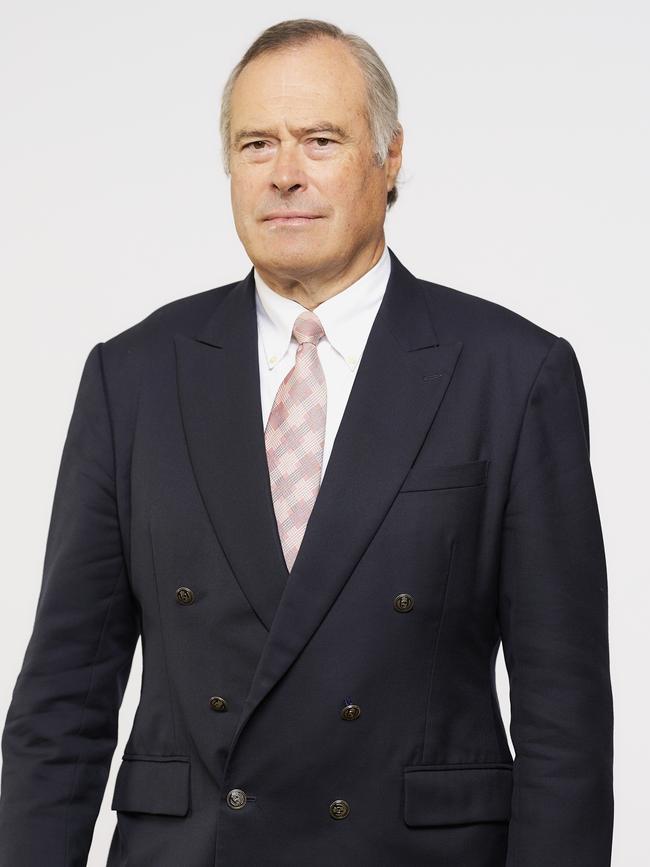
“It may be that most if not all of them will ultimately prove to be worthless,” Mawhinney said at the time. “For the most part they are unsecured lenders and they haven’t lived through a credit or retail cycle to which they are heavily exposed.”
The Humm deal eventually collapsed, prompting a rebuke of Abercrombie from Humm chairwoman Christine Christian, saying he had “overplayed his hand” in convincing shareholders that they would get a better deal.
Latitude too downplayed the deal’s failure, saying buy now, pay later only represented about a fraction of its total lending book. It is now in the process of exiting BNPL entirely.
“BNPL has achieved its aim by attracting more than half a million customers to Latitude but is an immaterial part of the business,” the company said in a statement.
“Given this, and as a consequence of the uncertainty surrounding the future regulatory environment, Latitude believes now is the right time to exit the sector.”
Back to the core
In the past year Fahour and his executives have been focusing on the company’s core business and its strengths – BNPL wasn’t one of them. It has since become Australia’s second biggest lender of personal loans after it bought Symple Loans for $200m – and with the deal came Bob Belan, Symple’s co-founder.
Latitude has also begun recovering from the pandemic as household savings dwindle and Australians look to making credit purchases again.
While Australians were spending big during the pandemic, Latitude wasn’t a main beneficiary, given shoppers opted to use cash they would have normally spent on overseas holidays rather than their credit cards or BNPL.
Last year group volumes increased 4.3 per cent but customer repayments remained at elevated levels, which pushed the size of the total lending book down 2.6 per cent.
But in the past six months, loan balances have begun stabilising, easing 1.9 per cent. This compares with a 14.6 per cent fall in 2020 as consumers were stuck at home and flush with cash through the Covid pandemic.
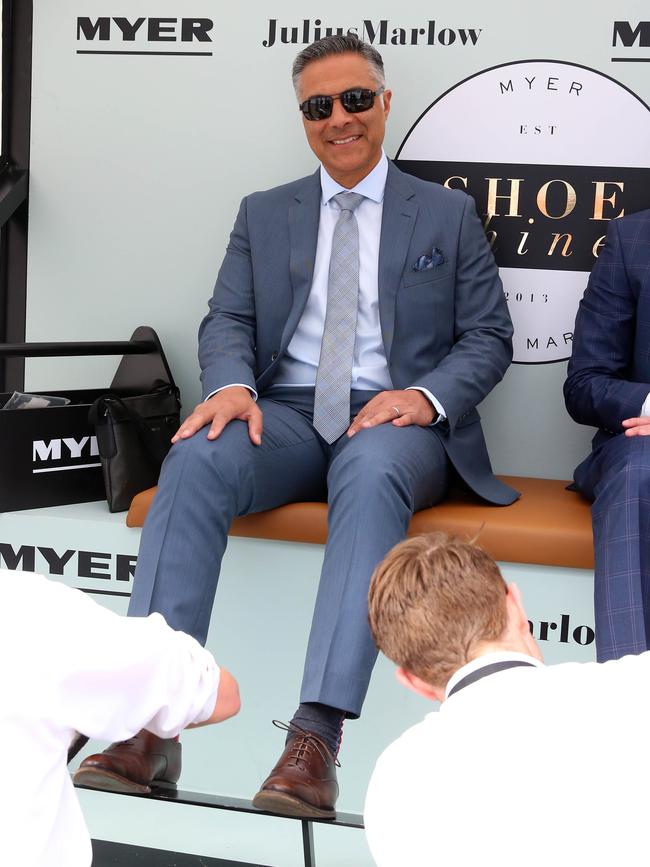
Latitude is still facing a tough market. As a non-bank lender it has seen the cost of funding its lending book rise sharply while higher interest rates are likely to see rising consumer stress.
On top of this a slowing economy and falling house prices are set to hit its biggest markets – purchase of big ticket household items such as TV, computers and white goods. Indeed players such as JB Hi-Fi have already warned of some slowing in demand from last year’s boom, which is expected to hurt Latitude’s transaction volumes.
Fahour trimmed costs, slashing Latitude’s workforce from around 1300 to 1000.
Although interest rate rises have steered more people back to credit, it has come at a cost for Latitude. In February, Fahour revealed that for every 100 basis points increase in the cash rate, Latitude took a $40m hit to its funding costs.
Macquarie said that Latitude’s margin pressures from rising funding costs remained a concern.
Fahour moved quickly to lift prices across Latitude’s products. The company said in February while price changes are lagging “the rapid increase to the cost of funds”, income yields rose 0.24 per cent in the past six months and will continue to normalise this year.
“The volume momentum across Pay and Money has started to flow through to receivables as elevated repayment rates start to moderate,” Fahour said.
“Delinquencies remain low and we are yet to see the full benefits of the action we took to reprice our products when interest rates began to increase. With our strong underlying balance sheet, cost discipline and work we have done to modernise our operations, we are in a strong competitive position as we look for growth opportunities that we believe will emerge in this market.”
Originally published as Not even Ahmed Fahour could save the company behind Harvey Norman, The Good Guys and JB Hi-Fi’s catchy deals


